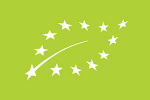Save Out Seeds Nachricht
27.05.2015 | permalink
EU Parliament draft report on organic regulation, going in the right direction

Brussels, 26 May 2015 – Today the European Parliament’s rapporteur on the Commission’s proposal for a new EU organic regulation, Martin Häusling, has presented his report to the Parliament Agriculture Committee.
“We welcome Martin Häusling’s report, which better reflects the needs of the organic sector, and is in line with the opinion of the Committee of the Regions and the independent evaluation report subcontracted by the Commission in 2012. It is a major step in the right direction, focusing on the needed improvements in the current legislation and clearly showing an understanding that an evolution of the organic regulation is needed, not a revolution”, said IFOAM EU President Christopher Stopes.
“One of the main issues hampering the organic sector is uneven implementation by Member States and the Green’s report adds new elements to the discussion,” stated Marco Schlüter, IFOAM EU Director. “The report also removes the most problematic elements of the Commission’s proposal, including the wrong-headed decertification threshold which would make organic farmers and processors pay for the pollution caused by adventitious contamination. In restoring the control aspects to the organic regulation, MEP Häusling also maintains the understanding that the organic food and farming based on a principled process of production, which cannot be evaluated simply by testing a final product. Import is another area where progress has been made, as the Green MEP corrects the Commission’s flawed compliance-based approach which would be detrimental to developing countries and would affect the availability of products for EU processors and consumers. Overall Häusling’s report is a good basis for discussion, even though some aspects need to be fine-tuned”.





